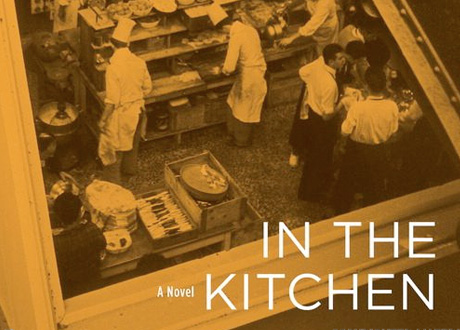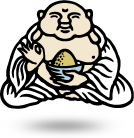In The Kitchen: A Review
Posted by Nancy Wu on Tuesday, July 21st, 2009Tags for this Article: In the Kitchen, Monica Ali

Ben has asked me to read “In the Kitchen” and share a review. Here are my first thoughts upon finishing it:
Monica Ali is definitely a writer who’s seen the inner bowels of a busy high-end British restaurant but I would have preferred an editor. “In the Kitchen” starts off with the discovery of a dead body and slowly unravels a myriad of characters–including numerous immigrant kitchen staff–and the protagonist, Gabriel Lightfoot, executive chef of the Imperial Hotel. Early on, I found myself getting bogged down with so many details and extraneous dialogue or descriptions that I had a hard time staying on track. I couldn’t tell if Ali wants to be a mystery, food, political or socialist writer, until I realized she wants to have it all. It was a challenge hanging around for the ride with characters I find despicable, annoying or very messed up. But halfway through, I needed to see how it ends. Upon introduction of Gabe’s family that’s when the calm happens. The frenzy of London gets shelved and real life relationships come into play; and that’s where I feel Monica Ali really shines. No doubt, she is a good writer, but the pacing she takes can be exhausting at times, that I just want to cut to the chase.
I suppose the most telling moment comes when some of the characters themselves describe (perhaps) the real rationale behind “In the Kitchen”:
“…Let’s say it is a decent novel and you believe in this character, you begin to understand him. Now, as you read, the character is always making decisions, choices, about his life, thinking, vacillating, about which way he will go….But if we have got to know him, his makeup, his circumstances, then we know how he will act. It is these books that take on authority, inevitability, because we feel they are true to life. The protagonist cannot be otherwise, cannot do otherwise, and yet he is condemned to behave—as we all must—as if he were free.”
“How boring is that? How boring is a book without twists and turns? What about characters who act on impulse, without any reason, without even knowing why they’re doing something?”
I wouldn’t say the book is boring or without twists and turns (it does get dark when the seedy underbelly of human trafficking, prostitution and abuse of immigrant workers are exposed). I would say it’s not essentially for the food-porn book lover but it IS connected to how some kitchens presumably work in big cities like London, NY, LA, etc. Many immigrant workers are busting their asses to get food on the plates of hungry folks who can pay for it while they struggle to get decent wages to cover their cost of living AND get something back for their families at home.
“In the Kitchen” is also not linear in its structure. It flits from Gabe’s childhood memories to his dreams to reality to his imagination and all over again. Which is why when I finally got to the end, I was glad to see it finally come to some sense of peace, both for the characters and myself. I’m not sure how I felt afterwards but I didn’t love it as much as I wanted to. A bit of heartburn after this meal, perhaps?

